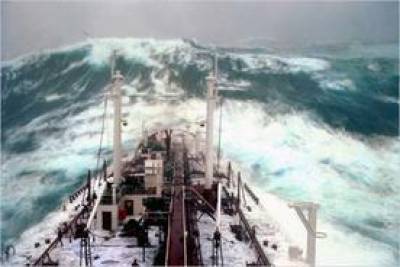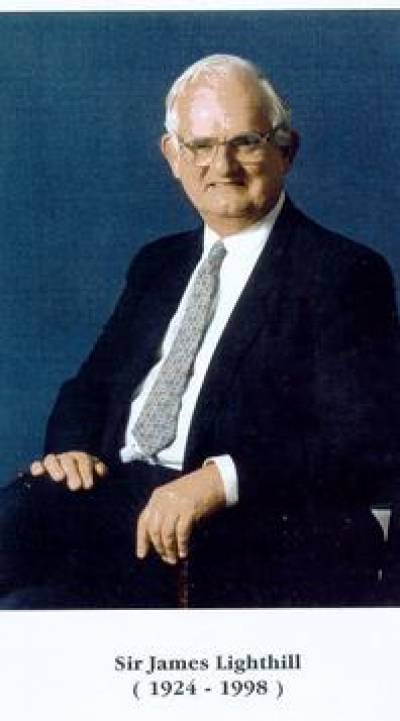 |
Wind-driven water waves play an essential role, both on the large scale ocean dynamics, with implications for weather and climate, and on the local scale where they affect transfer processes across the ocean-atmosphere interface, including extreme forces on marine structures, ships and submersibles. After 150 years of research, the dynamics of ideal linear and nonlinear waves, including their interaction and their evolution are broadly understood, although only recently have extremely large waves been identified through observations and in laboratory experiments. However, there are still conflicting theories about how wind generates waves, and there are only tentative theories about how wind forces affect the dynamics of extreme waves and wave groups. Current research on wind-wave dynamics by the proposers, and by other groups, is focussing on what is still a major question for water waves, namely, how in the presence of wind, do they form into characteristic groups (with or without "white caps") and what are their essential properties, depending on the local atmospheric and oceanic conditions. The prediction of extreme events, such as rogue waves in the open ocean, or in shallow water, and waves driven by tropical cyclones, is becoming of increasing concern due to effects induced by climate change. Further, wind-driven waves, especially through their effect on small-scale motions and turbulence near the surface, need to be better understood in order to improve predictions of heat and mass transfer at the atmosphere-ocean interface, essential for the development of climate models. Improved satellite observations and laboratory experiments are now becoming available to guide theoretical and modelling progress. Also, the general theme of transfer processes across a gas-liquid interface is relevant for flows in large pipes.
This issue forms the main basis for this forthcoming IUTAM symposium at UCL which will bring together theoreticians, numerical modelers, experimentalists and end-users in a forum where the latest research developments can be presented, providing an environment with constructive interchanges, and with the outcome that clear directions are established for future research, and to the implementation of research advances into operational use. The symposium will feature a keynote lecture dedicated to Sir James Lighthill, a major figure in the study of waves in fluids, and provost of UCL 1979-1989.
 |  |
Scientific committee
Chair: Julian Hunt Institution: University College London City: London Country: UK Email: julian.hunt AT ucl.ac.uk | Tiziana Rossetto Institution: University College London City: London Country: UK Email: t.rossetto AT ucl.ac.uk |
Shahrdad Sajjadi Institution: Embry-Riddle Aeronautical University City: Daytona Beach Country: US Email: sajja8b5 AT erau.edu | Ken Melville Institution: Scripps Institution of Oceanography City: La Jolla Country: US Email: kmelville AT ucsd.edu |
Efim Pelinovsky Institution: Institute of Applied Physics City: Nizhny Novgorod Country: Russia Email: pelinovsky AT gmail.com | Christian Kharif Institution: IRPHE, University of Marseille City: Marseille Country: France Email: kharif AT irphe.univ-mrs.fr |
Satoru Komori Institution: Kyoto University City: Kyoto Country: Japan Email: komori AT mech.kyoto-u.ac.jp |
Frederic Dias IUTAM Representative Email: frederic.dias AT ucd.ie |
Queries
For any queries please contact the local organisers:
Roger Grimshaw and Ted Johnson, University College London,
r.grimshaw@ucl.ac.uk, e.johnson@ucl.ac.uk
Accommodation
Unfortunately we do not have any accommodation to offer so participants will need to source their own. We offer a list of local hotels.
Registration
Registration costs £200 and is open now.
REGISTRATION IS NOW CLOSED.
Submit your abstract
ABSTRACT SUBMISSION IS NOW CLOSED.
Programme
Click here to view the programme
List of abstracts
Click here to view the abstracts
Venues
Please click here to view the list of venues
Photographs of the event
Some photographs taken at this workshop will be available shortly.
 Close
Close

